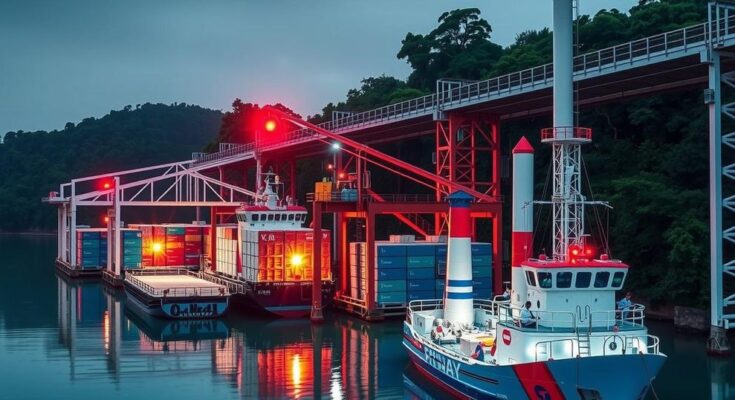Brazil’s paper and pulp industry asserts that the upcoming EUDR will not disrupt operations, citing two decades of supply chain traceability. To meet compliance, investments in blockchain technology may increase production costs, with implications for sustainable practices in the sector. While some welcome the EUDR’s postponement as beneficial, experts urge immediate action against deforestation, emphasizing urgent ecological concerns amid ongoing market demands and environmental risks.
Brazil’s paper and pulp industry remains unfazed by the European Union’s deforestation-free products regulation (EUDR), set to take effect in late 2025. The industry has effectively traced its supply chains for over twenty years and does not source products from illegally deforested regions. The EUDR mandates that suppliers demonstrate their goods are free from illegal deforestation sources, a measure welcomed by experts aimed at curtailing illegal forest destruction in the Amazon.
To address specific EUDR compliance requirements, companies will need to invest in blockchain technology and other innovations, potentially raising pulp production costs by up to $230 per ton, according to the Brazilian Tree Industry (Ibá). While some industry representatives believe the postponement of the EUDR allows for a more manageable implementation, deforestation experts caution against delays, highlighting the urgency of addressing ongoing deforestation issues.
Brazil exports approximately 4.4 million tons of pulp to the EU yearly, essential for the tissue paper sector. The industry boasts a significant area of cultivated trees and contributes positively to carbon sequestration by preserving native forests. All commercial plantations are established on lands with prior human activity, thus aligning with legal compliance and undergoing regular third-party audits based on international forestry certifications.
Ibá advocates for the EUDR, asserting it enhances transparency and validates the industry’s commitment to sustainable practices separate from natural forest deforestation. Despite existing traceability in the sector, adherence to the EUDR will require further technological advancements to document compliance meticulously.
Leading producer Suzano Papel e Celulose notes its readiness for the EUDR, already implementing robust forest management practices and meticulous tracing of raw materials through advanced systems. While it views EUDR compliance as an opportunity to set higher production sustainability standards, it is also developing an in-house blockchain solution to streamline documentation and compliance verification processes.
The postponement of the EUDR has sparked varied reactions among industry experts and leaders. While Ibá regards it as favorable for implementation, others emphasize the need for immediate action against deforestation, which if left unchecked, perpetuates high-risk classifications for Brazil in the international market.
The European Union’s deforestation-free products regulation (EUDR) aims to eliminate products linked to illegal deforestation in supply chains. This legislation will significantly impact exporters, particularly in Brazil, where increasing scrutiny is placed on agricultural and forestry standards. The EUDR is anticipated to enhance measures against deforestation and define clear due diligence expectations for different sectors, necessitating companies to strengthen their traceability systems to comply with these emerging regulations.
In conclusion, Brazil’s paper and pulp industry demonstrates preparedness to navigate the challenges posed by the EUDR through established traceability practices and upcoming technological investments. The regulation is viewed as a dual opportunity for enhancing operational transparency and addressing environmental accountability. However, differing perspectives regarding the postponement highlight the ongoing tension between industry readiness and urgent ecological needs, underscoring the critical balance between economic activity and environmental stewardship.
Original Source: news.mongabay.com




